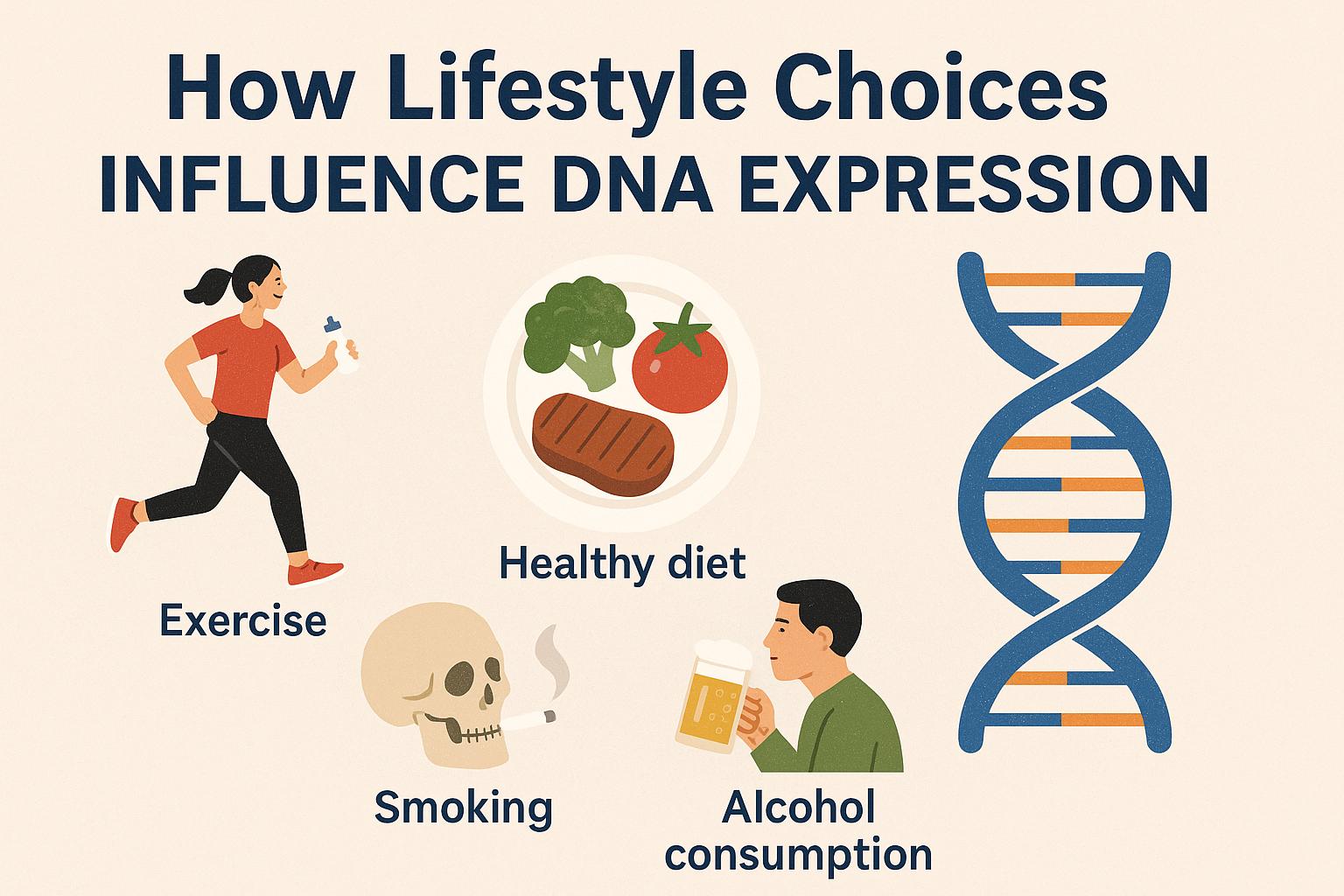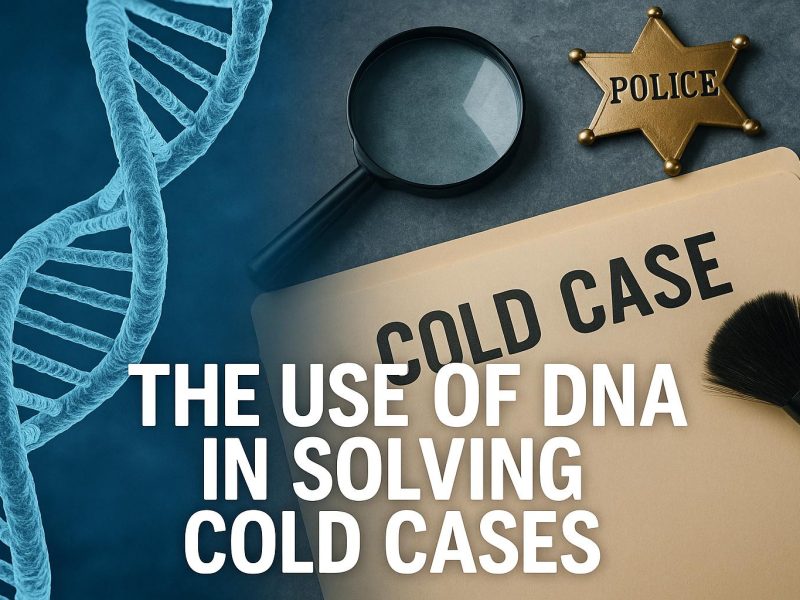Introduction to DNA Expression and Lifestyle
DNA expression, also known as gene expression, is a fundamental biological process through which the information encoded in a gene is utilized to create functional products such as proteins. These proteins are essential for maintaining the physiological functions of an organism. The ability of a cell to perform its designated roles and adapt to environmental changes is deeply influenced by gene expression. Recent scientific advancements have uncovered that lifestyle choices, such as diet, exercise, and stress management, can have a profound impact on DNA expression, presenting a fascinating link between our daily habits and genetic functions.
Understanding Epigenetics
Epigenetics is a branch of genetics that delves into how genes can be turned on or off through mechanisms that do not involve changes to the DNA sequence itself. These changes—termed epigenetic modifications—are crucial for regulating gene activity and can be influenced by one’s lifestyle and surrounding environment. Common epigenetic mechanisms include DNA methylation, histone modification, and the influence of non-coding RNA molecules.
- DNA Methylation: This involves adding methyl groups to DNA molecules, often leading to the repression of gene activity. Specific dietary components can influence this process, potentially impacting health outcomes.
- Histone Modification: Histones are proteins that help package DNA into structural units. Modifications to histones, such as acetylation, can alter the accessibility of genetic material, thereby affecting gene expression.
- Non-coding RNA: These RNA molecules are not translated into proteins but play a vital role in gene regulation by interacting with DNA or messenger RNA.
Diet and Gene Expression
Nutrition is a critical factor in modulating gene expression. A diet rich in essential nutrients, including vitamins, minerals, and phytochemicals, can have positive epigenetic effects, promoting beneficial gene expressions that support health and longevity.
A diet abundant in fruits, vegetables, and whole grains provides phytochemicals, which are compounds known to exert protective effects on gene expression. For example, certain phytochemicals can inhibit the methylation of tumor suppressor genes, thereby preventing cancer progression. Additionally, omega-3 fatty acids found in fish can influence gene expressions related to inflammation and cardiovascular health.
Conversely, a diet characterized by excessive fats and sugars may lead to detrimental epigenetic changes. Saturated fats and high sugar levels can trigger inflammatory gene expressions, potentially leading to obesity, diabetes, and cardiovascular diseases. Understanding the role of dietary components in gene regulation encourages healthier food choices to support overall well-being.
Exercise and Its Impact on Genes
Physical activity is well-acknowledged for its role in maintaining physical fitness but also plays a significant role in gene expression. Regular exercise can induce several positive epigenetic changes that enhance metabolic function, boost immune responses, and reduce the risk of chronic diseases.
During exercise, the body experiences physiological stress that demands enhanced energy production. This stress upregulates genes responsible for energy metabolism, facilitating better glucose and lipid utilization. Consequently, exercise is associated with improved insulin sensitivity and reduced risk of metabolic disorders. Additionally, regular physical activity can lead to the downregulation of genes linked to inflammation, offering a protective effect against inflammatory diseases.
The potential of exercise to modulate gene expression underscores the importance of incorporating regular physical activity into our daily routines to harness these genetic benefits.
Stress Management and Genetic Influence
Stress, particularly when chronic, can significantly affect gene expression, resulting in adverse health outcomes. The hypothalamic-pituitary-adrenal (HPA) axis is a central stress response system, and its dysregulation is closely linked to alterations in stress-related genes.
Chronic stress can lead to the overexpression of genes associated with anxiety and depression while impairing immune function. Effective stress management techniques such as mindfulness, meditation, and deep-breathing exercises have been demonstrated to stabilize these stress-related gene expressions, facilitating mental well-being and reducing the risk of stress-induced disorders.
The role of stress management in gene regulation highlights its importance as a component of a healthy lifestyle for promoting both mental and physical health.
Importance of Sleep on Gene Regulation
Adequate sleep is vital for maintaining optimal gene expression, particularly those regulating circadian rhythms. Sleep deprivation can disrupt the regular pattern of gene activity, consequently impairing cognitive functions and increasing susceptibility to metabolic and immune disorders.
Circadian rhythms, the body’s internal clock, rely on a set of core clock genes that orchestrate various physiological processes. Sleep directly influences the expression of these genes. Consistently insufficient sleep can lead to the dysregulation of genes involved in glucose metabolism and inflammation, heightening the risk of obesity, diabetes, and cardiovascular diseases.
Prioritizing quality sleep not only helps preserve cognitive and metabolic functions but also supports the homeostasis of gene expression, reinforcing the importance of a good night’s sleep for overall health.
Final Thoughts
Science is gradually uncovering the profound influence lifestyle choices exert on DNA expression. By understanding how behaviors related to diet, exercise, stress management, and sleep can modulate genetic functions, individuals are empowered to make informed decisions to support health and prevent disease.
Balancing these lifestyle factors encourages beneficial epigenetic modifications, offering a proactive approach to personalize health strategies. As research in this field advances, it is likely to provide further insights into the dynamic interplay between lifestyle and gene expression, paving the way for innovative interventions tailored to individuals’ genetic landscapes. These findings emphasize the importance of adopting healthy habits to optimize genetic potential and promote long-term health and well-being.



